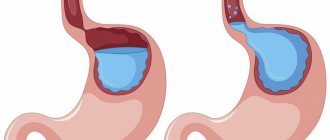Is kefir really healthy?
Kefir is a traditional product of our diet and a powerful digestive stimulant.
The most important beneficial property of fermented milk drink is that it contains beneficial lactic acid bacteria. An acidic pH environment and lactic acid bacteria - prebiotic lactocultures, very similar to the natural intestinal microflora, help to digest well not only kefir itself, but also other foods.
Kefir is a fermented milk product, which means it contains bacteria similar to those that live in the microflora of the human stomach. It has a beneficial effect on the functioning of the cardiovascular and nervous systems, in addition, it is a source of calcium and protein.
Article on the topic
Drink of long-livers. All about the benefits of kefir
Contains kefir:
- milk protein, fats, organic and fatty acids, natural sugars;
- vitamins - A, PP, beta-carotene, C, H, 8 B vitamins;
- minerals - calcium, magnesium, sodium, potassium, phosphorus, chlorine, sulfur, iron, zinc, iodine, copper, manganese, selenium, chromium, fluorine, molybdenum, cobalt.
Features of nutrition for constipation
Bowel emptying depends primarily on nutrition: with a completely meat diet, bowel movements occur once every 3 days, and with a plant-based diet - 2-3 times a day.
On average, given the mixed nature of the meals, if there is no bowel movement for more than 48 hours, doctors diagnose constipation, which occurs due to the slow movement of food through the intestines.
The reasons for this unpleasant phenomenon:
- lack of physical activity;
- eating disorder;
- lack of fluid in the body;
- colds with high fever;
- stress, sudden climate change and uncomfortable surroundings;
- long-term eating of crushed food due to the prescribed diet;
- pregnancy;
- taking antibiotics.
There are also more significant reasons leading to chronic constipation, such as endocrine and oncological diseases, pathologies of the gastrointestinal tract and nervous system.
If the cause of difficulty in defecation is poor nutrition, the diet needs to be rearranged: include roughage foods that are rich in fiber and enhance the motor function of the gastrointestinal tract, and add fermented milk products.
Constipation can be caused by colds.
If you have difficulty with bowel movements, you need to pay increased attention to your diet.
The main rules of nutrition for constipation:
- Eat 5-6 times a day.
- Include a large amount of fresh vegetables, fruits and dietary fiber in your diet: cabbage, prunes, dried apricots, figs, bran and whole grain bread, unrefined cereals and other foods that stimulate intestinal activity.
- Exclude jelly, rice, popcorn, unripe bananas, white bread, fatty meat, strong tea, chocolate and cocoa from the menu. Coffee consumption should be limited.
- Control the temperature of the food you eat. Food and drinks hotter than +60°C or colder than +15°C can affect gastrointestinal motility. You should not eat ice cream or drink hot tea.
However, the use of fermented milk drinks in all cases is an additional means of combating this delicate problem. Kefir contains beneficial lactobacilli, similar to intestinal microflora, and helps empty the latter.
For constipation, as with other problems with the gastrointestinal tract, it is recommended to eat often, in small portions.
The cooking technology should be gentle: boiling, stewing, baking instead of frying, because... in this case, food will not affect peristalsis.
What is better to drink at night - kefir or milk?
When before going to bed there is a choice between milk and kefir, it is better to choose the second.
In order for milk to be absorbed, you should drink it at least two hours before bedtime. And thanks to the bacteria, kefir is easily absorbed right away, so you can drink it just before bed.
Kefir for sneezing. How to protect yourself from seasonal allergies Read more
What kefir to drink for constipation
When purchasing fermented milk products, it is important to pay attention to 2 indicators: freshness and fat content. In addition, according to Roskachestvo experts, good kefir should not contain any plant components.
Fat or low fat
With some diets, you need to drink low-fat kefir in order to lose weight. However, including such a drink in the diet does not have a positive effect on constipation.
Low-fat kefir is drunk for the purpose of losing weight.
Many doctors are against the use of low-fat kefir, because it does not contain substances that enhance intestinal motility. Most doctors and nutritionists believe that it is better to buy fermented milk drinks with a fat content of 2.5-3.2%.
Product freshness
Only a fresh product that was produced no more than a day ago has a laxative effect.
The beneficial properties and taste of the drink depend on the date of manufacture. It is less acidic, the fermentation process has barely begun. Only this kind of kefir can help with constipation. In addition, a fresh drink more effectively removes harmful substances from the body. Already 2-3 days of use of the product has the opposite effect and further strengthens the stool. This is due to the presence of certain types of bacteria and alcohol in its composition, which causes a delay in bowel movements.
Is it true that kefir causes depression?
This is another misconception. Yes, kefir is sour, unsweetened, and it seems that there is not enough joy from it. But meanwhile, kefir contains the amino acid tryptophan, which is a source of the joy hormone - serotonin. When we drink kefir, our body better synthesizes joy hormones. No depression. We are light, airy and happy.
Important!
Kefir is a drink that relaxes the nervous system, so it is not recommended to use it during periods of increased concentration (exams, business negotiations).
By the way, according to the results of an examination of kefir conducted by Roskachestvo. Violations were found in 19 out of 36 brands of kefir. For example, mold, vegetable fats and E. coli were found.
Click to enlarge
What substances are needed to soften stool?
To combat constipation, you need to make sure that your food contains enough of the following substances:
- Water. A lack of fluid in the body causes stool to become dry and difficult to move through the intestines. In this regard, it is necessary to maintain water balance.
- Fiber. Consumption of refined food leads to a lack of fiber in the diet, which stimulates the promotion of processed products.
- Fats. The presence of this component in the diet causes the release of bile, which is necessary to improve the functioning of the digestive tract. In addition, fat stimulates peristalsis. This promotes more regular bowel movements and helps the contents move more easily. However, foods with excess fat should be excluded from the menu.
- Vegetables and fruits. Due to the presence of carbohydrates, most of them help soften the stool. These are beets, prunes, dried apricots, cabbage, cucumbers, tomatoes, etc. You can drink vegetable juices: beet, carrot and potato.
To combat constipation, you need to consume fiber.
As an additional means of stimulating the gastrointestinal tract, fermented milk drinks containing beneficial bacteria are consumed.
Using kefir for constipation
Without exceeding the norm, kefir can be consumed constantly. For greater benefits from using the drink, you must follow the established rules.
What time to drink
To overcome constipation, it is best to drink kefir on an empty stomach - either in the morning, immediately after waking up, or in the evening, before going to bed.
Drink kefir on an empty stomach in the morning or evening.
Drinking the drink at night is preferable, since during this time the intestines have time to cleanse themselves of accumulated waste and toxins, and in the morning all these impurities will be released naturally.
At what age can children
Today, based on scientific research, it is generally accepted that kefir can be given to children from 8 months. Some experts recommend offering the drink to a child from 12 months. In their opinion, kefir irritates the baby’s mucous membranes, which can cause bleeding.
Doctors recommend giving children 100 g of the drink per day; more can harm the delicate mucous membranes.
How much should I use?
Excessive consumption of kefir can lead to diarrhea. Doctors and nutritionists recommend including 1-2 cups of drink per day in your diet, i.e. 300-500 ml. You can drink kefir at night regularly, as a preventive measure.
Consuming kefir in large quantities leads to diarrhea.
For low acidity of gastric juice and constipation, kefir can be consumed 3 times a day before meals, ½ cup.
The most effective foods against constipation
Properly cooked meat and fish will significantly improve intestinal motility.
Diet is the most effective method of treating chronic constipation. It not only normalizes intestinal function, but also reduces the load on the liver and pancreas, and helps get rid of stomach problems.
As a rule, a diet for constipation includes a large amount of fiber and liquid, but requires limiting foods that are difficult to digest and cause increased gas formation. There is a list of foods whose regular consumption will significantly improve intestinal motility:
- Flour products. However, this does not mean that you need to indulge in fresh pastries, rolls and pies. Only day-old or dried bread made from wholemeal flour, as well as bran bread, are good for the intestines; you can buy dietary bran, amaranth and rye bread. Rye bread should not be eaten by those who suffer from increased gas formation. You can eat biscuits and crackers, but in limited quantities.
- Meat and fish. Meat does not harm the intestines if it is properly cooked. Lean beef, turkey, boiled chicken breast or in the form of steamed cutlets will not only not harm you, but will also help improve the functioning of the gastrointestinal tract.
- Fruits. For constipation, it is recommended to eat plums, apples, and kiwi. But it’s better to avoid pears and bananas. The fruit can be eaten as a fruit salad with low-fat yogurt. Daily consumption of fruit partially satisfies the body's need for fiber and vitamins.
- Dried fruits. Perhaps this is the best laxative, as well as an irreplaceable source of vitamins. Prunes and dried apricots have long been known for their laxative effect. You can cook compotes from them, eat them just like that, or add them to salads and porridges.
- Vegetables. Vegetables are rich in fiber, but it is advisable to eat them raw. It is better to reduce the consumption of boiled potatoes. There is a salad called “Broom”, which cleanses the intestines better than any laxative. It includes raw carrots, beets, cabbage and greens. This salad is seasoned with oil, but not salted.
Features of use in pregnant women and children
Babies can have a variety of digestive problems. Since kefir weakens or strengthens, you need to use this and select a product of the right freshness for your child, depending on the situation.
Breastfed babies of the first year of life can be fed a sour drink from 8 months. If a child receives artificial formula instead of mother's milk, then it is allowed to be introduced into the diet a month earlier. Up to 3 years of age, it is better to use special children's kefir; older children can use a low-fat adult drink, preferably given in the evening.
How should expectant mothers take it for constipation? This product should not be combined with castor oil. Otherwise, it is suitable for pregnant women. During this period of life, women are often bothered by constipation, sometimes very persistent.
Synthetic laxatives are prohibited, so you have to cope with the problem with proper nutrition. A glass of fresh fermented milk drink every day will be very helpful. It is allowed to combine it with vegetable oil, for example, drink kefir with olive oil at night or with sunflower oil. Reviews about this recipe from expectant mothers are only positive. However, with uterine hypertonicity, cholecystitis and allergies, it is better to avoid oil in kefir.
Recipes with kefir for constipation
To enhance the effect, you can use kefir in combination with other products that help soften stool: prunes, oils, nuts, flax seeds.
Kefir with prunes
You can mix kefir with softened and ground prunes. It is recommended to take 8-10 pieces for 1 cup of drink. fruits This mixture is drunk at night every day.
With flax oil
Add 1 tsp to slightly warmed kefir. linseed oil. It stimulates the release of bile, which promotes digestion and relieves constipation. The mixture is drunk in the evening, before bed.
You can add flax oil to kefir.









